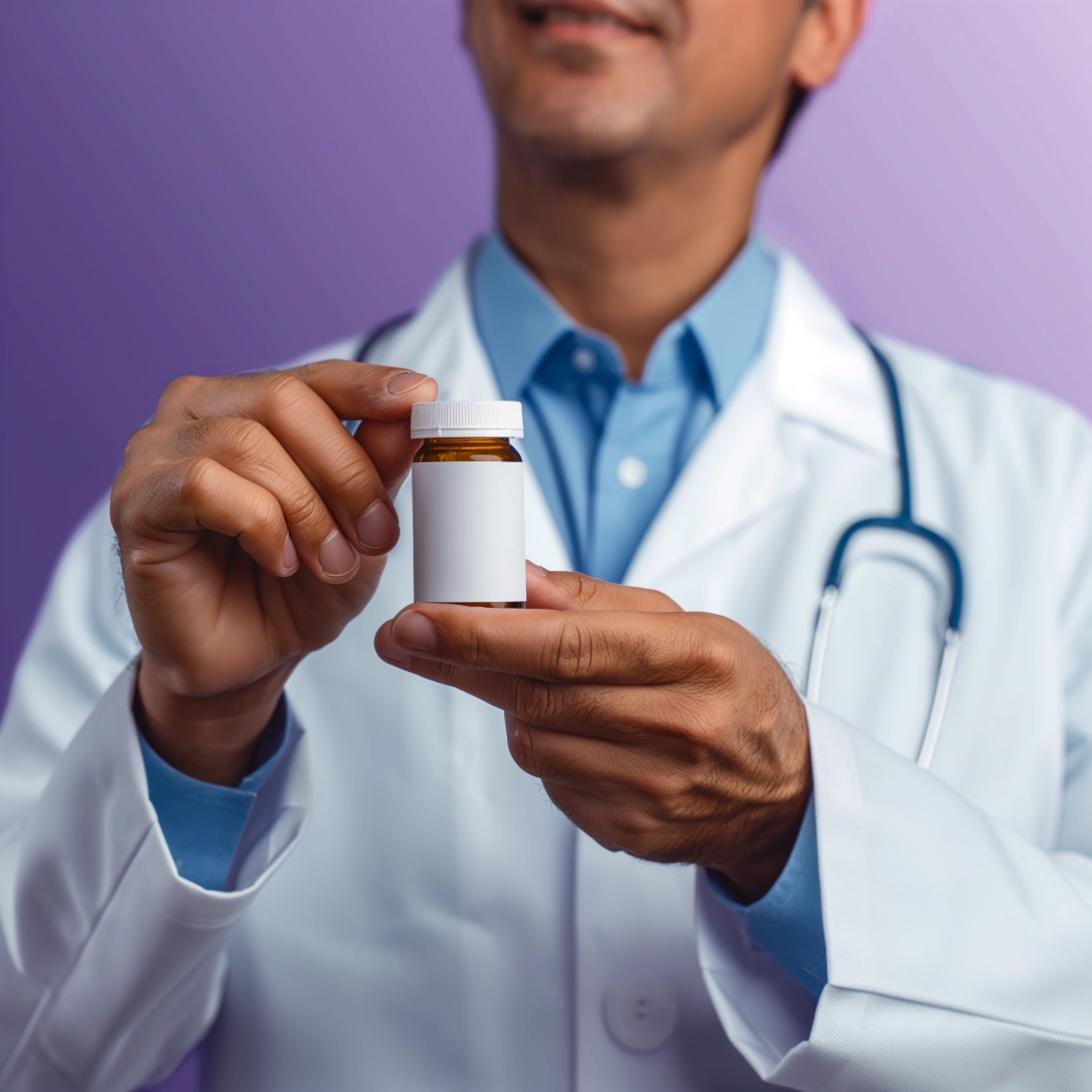How To Increase Estrogen To Get Pregnant Naturally?
 To increase the likelihood of conceiving, you may want to take steps towards normalizing your estrogen levels. This can be done through medication and making lifestyle adjustments such as changing up your diet or losing weight. These changes in hormones and overall habits have been known to help restore their balance so that it’s easier for a woman’s body to become pregnant again.
To increase the likelihood of conceiving, you may want to take steps towards normalizing your estrogen levels. This can be done through medication and making lifestyle adjustments such as changing up your diet or losing weight. These changes in hormones and overall habits have been known to help restore their balance so that it’s easier for a woman’s body to become pregnant again.
Are you having trouble getting pregnant and think low estrogen might be the cause? If you’re looking for ways to boost your estrogen levels to improve your chances of conceiving, you’re in the right place. Estrogen is super important for your reproductive system, and having the right levels can make it easier to get pregnant.
This article gives you tips on natural methods, things to eat, and, if needed, medical help to raise your estrogen levels for a better chance of having a baby.
How to Increase Estrogen Levels for Fertility
This comprehensive guide covers practical steps you can take to increase estrogen levels, based on guidance from ob-gyns and fertility specialists. Follow these methods for safely and effectively giving your estrogen a boost while trying to conceive.
Step 1 Eat More Phytoestrogen-Rich Foods

- Consume 1-2 servings of soy products daily such as tofu, tempeh, edamame, and miso paste. Soybeans contain isoflavones that mimic estrogen.
- Sprinkle 2 tablespoons of ground flaxseed onto cereals, yogurt, oatmeal, or salads daily. The lignans in flaxseed possess estrogen-like effects.
- Snack on a handful of sesame seeds, almonds, walnuts, or pistachios daily. Nuts and seeds are great sources of dietary estrogens.
- Include lentils, chickpeas, black beans, and other legumes in your diet several times a week. Bean sprouts also contain phytoestrogens.
- Enjoy a serving of dried fruit like prunes, dates, and apricots 1-2 times daily to get an estrogen boost.
- Eat fresh estrogen-rich fruits like strawberries, peaches, plums, and pears daily.
Expert Tip: Aim to consume two to three servings of phytoestrogen-rich foods per day as part of a healthy, balanced diet to help support estrogen levels.
Step 2 Ask Your Doctor About Herbal Supplements

- Consult your doctor about taking red clover, evening primrose oil, chasteberry, or maca root to support estrogen levels. Follow dosage instructions carefully.
- Stop taking herbal supplements if you experience any side effects and notify your doctor.
- Do not take herbal supplements continuously for more than 90 days. Give your body a break between cycles.
Expert Tip: Always consult your physician before taking herbal supplements, especially if you have any medical conditions or take other medications to prevent interactions.
Step 3 Get Tested and Treated by Your Doctor

- Have your doctor check estrogen blood levels to determine if hormone imbalance is causing fertility issues.
- Discuss prescription estrogen medications, creams, patches, or vaginal rings if your estrogen is low. These require oversight.
- Rule out any underlying medical conditions like hypothyroidism or pituitary tumors contributing to low estrogen.
Expert Tip: Have your doctor check estrogen blood levels on day 2-5 of your cycle for an accurate baseline reading to determine if hormone therapy is recommended.
Step 4 Make Lifestyle Changes That Support Hormone Balance

- Quit smoking and avoid secondhand smoke which can impair fertility.
- Get 7-9 hours of sleep nightly. Lack of sleep disrupts hormone production.
- Manage stress through yoga, meditation, walks, and adequate rest. Stress hormones prevent conception.
- Exercise moderately for 30 minutes daily through light cardio, yoga, or walking. Avoid intense workouts that can impact ovulation.
Expert Tip: Protect your fertility and estrogen levels by aiming for 7-8 hours of high quality sleep per night to allow optimal hormone production.
The Importance of Estrogen for Fertility
Estrogen plays a key role in female fertility, as it affects the menstrual cycle and egg quality while also being linked to improved chances of conception due to its influence on the uterine lining. This important hormone has an undeniable impact on reproductive health, with higher levels correlating closely with successful pregnancy outcomes.
Estrogen’s role in the menstrual cycle
The menstrual cycle is managed by estrogen, and it works to ensure optimal ovulation as well as a strong release of healthy eggs in the follicular phase, this period commences with menstruation but ends at ovulation. During this time, levels of estrogen are highest. Luteinizing hormone plays an impactful and noteworthy role in all stages of the cycle too.
Estrogen and egg quality
Healthy estrogen levels are vital for reproductive health and fertility. Estrogen facilitates proper egg maturation and release during the menstrual cycle. When estrogen is low, eggs may not fully develop or ovulate properly. This can cause irregular, unpredictable, or missed periods as well as infertility.
Additionally, estrogen thickens the uterine lining, known as the endometrium, to prepare for pregnancy. If the uterine lining is too thin due to low estrogen, embryo implantation and growth cannot occur.
Overall, diminished estrogen disrupts critical reproductive processes – egg quality, ovulation, and endometrial thickening – required for conception and a sustainable pregnancy. Maintaining estrogen within normal ranges aids menstrual regularity, ovulation, and embryo implantation to support fertility.
Identifying Low Estrogen Levels
Identifying low estrogen levels is a crucial first step in addressing fertility issues. Symptoms associated with reduced estrogen can range widely, from physical signs such as fatigue and headaches, to emotional changes like mood swings. These symptoms can often be subtle, and may be easily dismissed or attributed to other causes. However, they can provide important clues about hormonal imbalances that may be affecting your fertility.
Common symptoms
The multifaceted symptoms of low estrogen levels are often overlooked or misattributed to other conditions. However, a constellation of interconnected signs point to deficient estrogen.
Hot flashes and vaginal dryness frequently occur during menopause when estrogen production declines. Headaches may also indicate low estrogen as this hormone regulates fluid balance; imbalances can trigger migraines.
Fatigue arises from estrogen’s systemic effects on energy metabolism. Menstrual irregularities directly result from low estrogen’s impact on the menstrual cycle. Diminished libido is another possible sign due to estrogen’s influence on comfortable sexual function and vaginal health.
These symptoms collectively stem from low estrogen’s disruption of physiological processes. If left unaddressed, fertility and overall wellbeing may suffer. Therefore, recognizing potential indicators early and connecting them to underlying estrogen deficiency is crucial. Prompt evaluation and treatment of hormone insufficiency can relieve symptoms and support reproductive and holistic health.
Causes of low estrogen
Estrogen levels can fluctuate over a woman’s lifespan due to age, weight, and stress. As women reach menopause, the ovaries estrogen output declines naturally, often causing symptoms like hot flashes.
Body weight also modulates estrogen, as fat tissue both stores and secretes estrogen. Very high or low body weights may tip optimal balance.
Additionally, psychological and physical stress can additionally depress estrogen; when strained, the body prioritizes stress hormones over sex hormones like estrogen long-term.
Imbalanced estrogen production from aging, adiposity, and chronic stress manifests as insufficiencies that can undermine fertility. While some fluctuation is normal, prolonged or pronounced highs and lows among these factors that determine estrogen levels may warrant evaluation for hormone stabilization. Maintaining healthy lifestyle behaviors can support balanced estrogen levels across the reproductive years and menopausal transition.
Natural Ways to Increase Estrogen Levels
It is possible to naturally improve low estrogen levels and boost fertility despite its challenges. Making dietary changes, altering lifestyle habits, and taking herbal supplements can all help raise the level of this hormone for increased chances of conception.
Dietary changes
Scientific research supports the claim that certain foods, particularly those rich in phytoestrogens, can help balance hormone levels, including estrogen. Phytoestrogens are plant-derived compounds that can mimic the effects of estrogen in the body.
Nuts and dried fruits are excellent sources of these beneficial compounds. For example, sesame seeds, in particular, have been found to be a rich source of lignans, a type of phytoestrogen. A study published in the Journal of Agricultural and Food Chemistry found that sesame seeds contain significantly higher levels of lignans than other nuts and seeds. These lignans can bind to estrogen receptors and have been shown to have a modulating effect on the body’s own estrogen production, helping to balance hormone levels.
Furthermore, a study published in the journal Menopause found that a diet rich in phytoestrogens was associated with a reduction in menopausal symptoms, which are often caused by a decline in estrogen levels. This suggests that consuming foods high in phytoestrogens could help to increase estrogen levels in the body, potentially improving fertility and reproductive health.
Lifestyle adjustments
Estrogen levels can be significantly influenced by lifestyle changes, including exercise and weight management. Regular physical activity has been shown to help regulate hormonal balance, including estrogen levels. However, it’s important to strike a balance. Moderate exercise, in the range of 30 minutes to an hour of aerobic activity most days of the week, is generally considered beneficial for overall health and hormonal balance.
It’s worth noting that excessive physical activity can have the opposite effect, potentially leading to hormonal imbalances including decreased estrogen levels. Thus, it’s important to maintain a balanced, consistent exercise routine for optimal estrogen production.
Stress reduction is especially critical since it may cause a decrease in peak estrogen amounts during the menstrual cycle, even when concentrations of this hormone would usually increase. Excessive physical activity might also lead to such fluctuations in estrogen production.
Herbal supplements
Some plants have been traditionally believed to increase estrogen and fertility. Supplements like black cohosh, chasteberry, and red clover contain compounds similar to estrogen. In theory, these could raise low estrogen levels in some women.
However, these herbs do have potential side effects. Black cohosh may irritate the stomach, cause rashes, or rarely damage the liver. Chasteberry could lead to nausea, headaches, or irregular periods. Even red clover, typically considered safe, might bring on rashes, muscle pain, or headaches for some.
These supplements are also unsafe for those with a history of breast cancer or cancers affected by hormones. The herbs may spur cancer cell growth. As with any supplement, check with your doctor before starting. Make sure the herbs are safe and helpful for your health and fertility goals. While some women may benefit, side effects are possible. Medical guidance is key in deciding whether these options are right for you.
Medical Treatments for Low Estrogen
When estrogen levels dip below the norm, it may be necessary to seek medical help to rectify the issue. Hormone Replacement Therapy or fertility treatments could prove beneficial in increasing estrogen and improving prospects for conception. Boosting natural hormone production is crucial, especially estrogen, as its deficiency can hinder individuals from achieving their fertility goals.
Hormone Replacement Therapy (HRT)
Hormone Replacement Therapy (HRT) is a medical intervention that provides the body with additional hormones, predominantly estrogen, and sometimes progesterone. These hormones can help alleviate symptoms linked to low estrogen levels, such as hot flashes, night sweats, vaginal dryness, and mood swings.
HRT works by compensating for the reduced production of hormones in the body. It typically involves the administration of estrogen and progesterone, either separately or in combination. The hormones can be delivered through various means, such as tablets, skin patches, gels, or implants.
While HRT can be highly effective in treating symptoms of low estrogen, it’s not without risks. These include a slightly increased risk of certain conditions, such as blood clots and breast cancer. However, the level of risk depends on individual factors, including age and overall health. It’s also important to note that the benefits of HRT often outweigh these potential risks for many women.
Fertility treatments
For those with low estrogen who struggle to get pregnant naturally, in vitro fertilization (IVF) can help. IVF is a common option when hormone issues exist or other treatments fail. The process can bypass problems with fallopian tubes, men’s fertility or unexplained trouble having a baby.
IVF starts with taking hormones to produce multiple eggs. The mature eggs get surgically removed. Then in the lab, eggs join with sperm to form embryos. After some days growing, one or more embryos transfer to the uterus. There the goal is for them to implant and continue developing.
Extra hormones often get used in IVF to ensure enough eggs mature and the uterus prepares properly. This matters even more for those already battling low estrogen. Estrogen thickens the uterus’ lining so that it can nurture the implantation and growth of an embryo.
Though intense, IVF combined with hormone support provides a possible path to pregnancy for those not conceiving due to issues like low estrogen levels.
Monitoring Estrogen Levels
To ensure the proper functioning of a reproductive system, tracking estrogen levels is essential. To monitor success with treatments and overall health progress, it’s vital to keep up with regular check-ups through healthcare professionals or at home tests which can help measure estrogen concentrations in the body.
At-home testing
Home hormone test kits let you easily and affordably check estrogen from home. They aim to measure hormone levels simply without visits to the doctor – however, though easy to use, these DIY kits may not read levels as precisely as medical tests. So they shouldn’t replace regular doctor appointments. Instead, they should serve as a supplementary tool in your journey towards understanding your body better.
For fertility, knowing estrogen levels matters. Estrogen drives the menstrual cycle and prepares the uterus for supporting a pregnancy. Too high or low estrogen might mean irregular cycles, trouble getting pregnant, or even miscarriage. Tracking levels could flag issues early for treatment.
So home tests can offer initial hormone snapshots, especially if fertility awareness matters right now. They help you better understand your reproductive health, and help guide next steps on your journey, like whether to ask your doctor about further testing. These at-home kits serve as a great starting point for anyone looking to gain a better understanding of their reproductive health. They can provide valuable insights into your hormonal health, helping you make informed decisions about your fertility journey.
Working with a healthcare provider
Regular consultations with healthcare professionals are vital for monitoring estrogen status and guiding appropriate interventions, including those related to pituitary function. Specialists like endocrinologists, gynecologists, primary care physicians, and integrative medicine practitioners possess expertise in hormonal balance and can assess estrogen levels specifically.
To get the most out of your appointments, document any relevant symptoms, menstrual cycle patterns, lifestyle modifications, or dietary changes that have occurred. This data crucially contextualizes your hormone profile for providers.
During visits, actively ask questions. Inquire about current estrogen measurements, fertility impacts, and possible treatment options with respective side effect considerations. Consider discussing scientifically backed lifestyle modifications that could naturally regulate estrogen levels as well.
Remember, your healthcare provider is there to help you navigate through this journey, so don’t hesitate to seek their advice and ask any questions you may have about your estrogen levels and overall fertility.
Tips for Trying to Conceive with Low Estrogen
Conceiving with low estrogen levels can be difficult, but having a clear understanding of your body’s fertile window and staying optimistic will boost the chances for success. By keeping track of what is happening to those hormones in particular, you are more likely to succeed on this journey.
Timing intercourse
In order to conceive with low estrogen, it is essential that couples have intercourse within the optimal fertile window. This period usually starts around five days prior to ovulation and ends roughly a day after. Thus making precise timing key for successful fertilization.
Staying positive and patient
Adopting an upbeat attitude can be profoundly beneficial in the conception process, helping to reduce stress and keep healthy. A positive outlook has been shown to have a tremendous effect on creating conditions which aid in conception without any adverse weight gain being experienced as result. Having patience throughout this journey is vital for keeping one’s wellbeing strong thus facilitating favourable outcomes.
The Last Word
Navigating fertility with low estrogen levels can seem intimidating, but knowledge and the right tools enable you to manage your hormone levels effectively. It is essential to recognize the value of having adequate amounts of this reproductive hormone for reproduction. Be aware of symptoms signaling deficiencies, consider natural strategies as well as clinical treatments that raise its production and keep track of progress along your journey towards conception.
Q & A How to Increase Estrogen to Get Pregnant Naturally
The content of this article is not intended to be a substitute for professional medical advice, examination, diagnosis, or treatment. You should always contact your doctor or other qualified healthcare professional before starting, changing, or stopping any kind of health treatment.
How can I raise my estrogen levels quickly?
To increase the likelihood of conceiving, you may want to take steps towards normalizing your estrogen levels. This can be done through medication and making lifestyle adjustments such as changing up your diet or losing weight. These changes in hormones and overall habits have been known to help restore their balance so that it’s easier for a woman’s body to become pregnant again.
What are the common symptoms of low estrogen levels?
Estrogen plays a vital role in our bodies, and low levels can cause numerous symptoms. Common ones include headaches, hair changes such as loss of production or darkening of the skin from acne breakouts, bone density decline, and vaginal dryness. Fatigue and difficulty sleeping can also be factors.
What medical treatments are available for low estrogen levels?
Women with low estrogen levels may seek medical treatments to balance their hormones, such as hormone replacement therapy. If conception is not happening naturally, then in vitro fertilization (IVF) might be necessary. Estrogen plays a significant role for female health and it’s important that those with low levels of this hormone find the right treatment approach tailored to them specifically.



